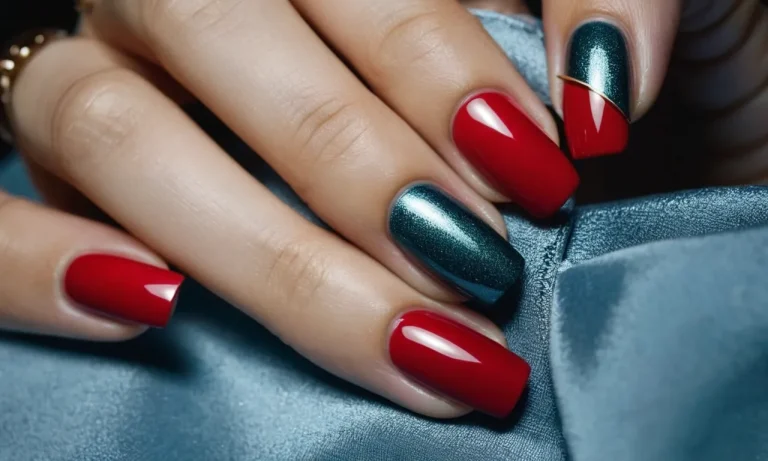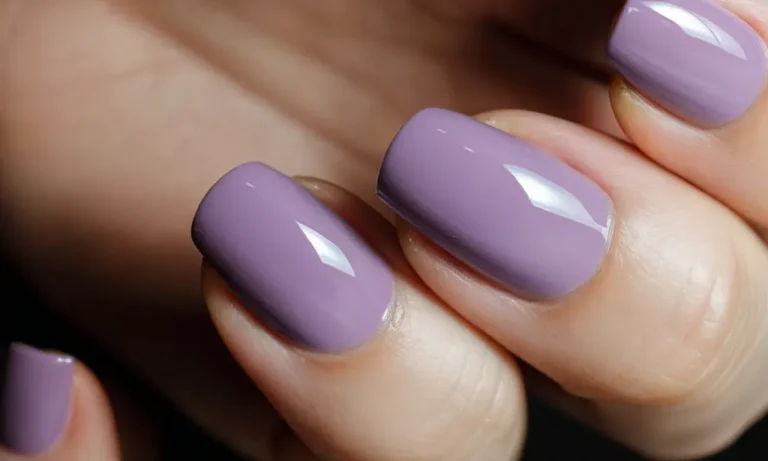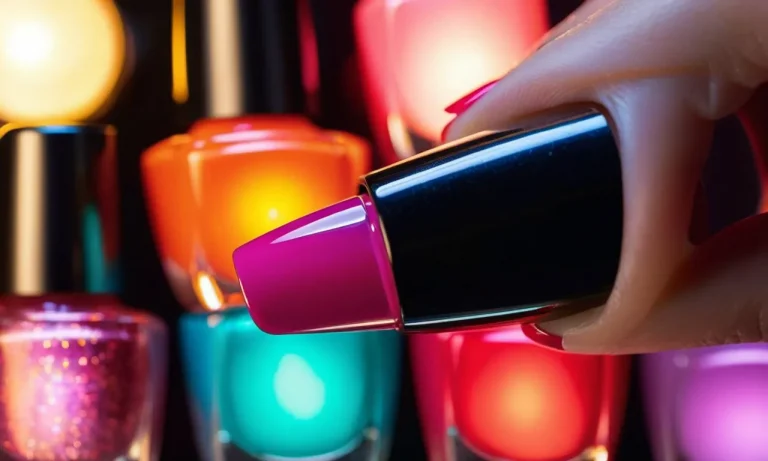Hair, Skin And Nails Vitamins: A Comprehensive Guide On Their Side Effects
If you’ve noticed your hair looking dull or your nails becoming brittle lately, you may be considering taking hair, skin, and nail supplements to restore their health. But before rushing off to buy these multivitamins packed with biotin, keratin, and other beneficial nutrients, it’s important to educate yourself on their possible side effects.
In short, minor side effects like skin breakouts and stomach upsets are possible with these vitamins. But serious risks are very rare if you take them as directed by healthy adults without pre-existing conditions.
In this comprehensive 3000-word guide, we will cover everything you need to know about the safety profile of hair, skin, and nails vitamins, including:
What Are Hair, Skin and Nail Vitamins?
Definition and Common Ingredients
Hair, skin, and nail vitamins are dietary supplements that contain a blend of key nutrients that support the health and growth of hair, skin, and nails. Common ingredients in these supplements include:
- Biotin: This B vitamin helps produce keratin, a protein required for healthy hair and nails.
- Vitamin C: An antioxidant that assists collagen production for smooth skin and helps protect hair follicles from damage.
- Vitamin E: Another antioxidant that fights skin-aging free radicals and moisturizes for soft skin and hair.
- Vitamin D: Regulates hair follicle cycling and growth. Many people are deficient in vitamin D which can lead to hair thinning over time.
- Iron: Transports oxygen to follicles and skin cells for proper growth and renewal.
- Zinc: Supports cell regeneration for skin clarity. Deficiencies can cause hair shedding.
These supplements often contain various herbal extracts as well like bamboo, horsetail silica, and fo-ti root for additional hair and nail strengthening properties.
Purported Benefits
The proposed benefits of taking dedicated hair, skin, and nail supplements include:
- Stronger, faster-growing hair: Nutrients like biotin, iron, zinc, and B vitamins nourish follicles for reduced hair loss and breakage.
- Smoother, clearer skin: Antioxidants fight free radical damage from the sun and pollution while compounds like bamboo silica boost collagen for firmness.
- Harder nails: Silica forms cross-linkages between structural proteins like keratin and collagen for more durable nails less prone to cracks, splits, and breaks.
However, clinical research on the real-life efficacy of these specialized supplements is still quite limited. More robust trials are needed to make definitive claims.
Safety Overview
When taken as recommended by healthy individuals, hair, skin, and nail vitamins are generally considered safe with a low risk of side effects. As they mostly contain water-soluble vitamins, excess amounts are usually flushed out in urine.
However, potential adverse effects can include:
- Skin reactions like acne breakouts
- Digestive issues such as diarrhea
- Headache
- Unusual body odor
Those taking medications should consult their doctor first, as interactions may occur. For example, these products often contain vitamin A (retinol), which can be unsafe in pregnant women or when combined with certain acne prescription treatments containing retinoids.
While moderate overdosing is not common or dangerous with hair/skin/nail supplements, taking extreme excess amounts for long periods may have toxic effects depending on the specific nutrients involved. Thus, sticking to standard dosage guidelines is important.
Minor and Temporary Side Effects
Acne and skin breakouts
Taking hair, skin and nail supplements can sometimes lead to minor skin irritation like acne and breakouts. This is often due to the high vitamin and mineral content in the supplements. For example, biotin is great for hair and nails, but it can also cause acne in some people.
Vitamin B5 is another ingredient that may worsen acne in those prone to breakouts.
The good news is that these breakouts are usually minor and temporary. Here are some tips to deal with acne from supplements:
- Reduce the dosage – Try taking a lower dose and see if that prevents breakouts.
- Take with food – Taking supplements with meals can help minimize absorption and side effects.
- Stop usage – If acne persists, stop taking the supplement for a while. Then reintroduce it slowly.
- Consult your dermatologist – They can provide tailored advice and treatment options for supplement-induced acne.
With some minor adjustments, most people can continue taking hair, skin and nail supplements without issue. The key is being observant about how your skin reacts.
Gastrointestinal issues
Digestive problems like nausea, diarrhea and constipation are possible with some hair, skin and nail supplements. Ingredients like vitamin A, zinc, selenium and chromium may irritate the stomach lining and intestines when taken in high doses.
Here are some tips to prevent GI issues when taking these supplements:
- Take with food – This helps minimize ingredient absorption and irritation.
- Stay hydrated – Drinking enough fluids can relieve constipation.
- Lower dosage – Try cutting your dose in half to see if it helps.
- Stagger dosage – Divide your daily dose into smaller portions throughout the day.
- Avoid problem ingredients – If a specific ingredient seems to be causing irritation, try a different supplement without it.
Mild GI problems typically resolve within a few days of taking supplements. But if issues persist or worsen, be sure to consult your doctor.
Allergic reactions
It’s possible to have an allergic reaction to ingredients in hair, skin and nail supplements. Signs can include:
- Hives, rash or itching
- Swelling of the face, lips or throat
- Wheezing or difficulty breathing
- Dizziness or fainting
Allergic reactions are rare but can be dangerous. Stop taking the supplement immediately and seek emergency care if you experience any severe symptoms.
To help prevent allergic reactions:
- Read ingredient labels carefully and avoid known allergens.
- Take a small test dose at first and wait to see if any reactions occur.
- Let your doctor know about any existing allergies before starting supplements.
With caution, testing and advice from your doctor, most people can safely take hair, skin and nail supplements. But it’s important to remain vigilant about potential side effects and allergic reactions when trying any new supplement.
Rare But Serious Side Effects and Contraindications
Negative interactions with medications
While hair, skin, and nail supplements are generally safe for most people, there are some rare but serious potential side effects and contraindications to be aware of. One is negative interactions with certain medications.
For example, high doses of vitamin A can interact with some acne medications like Accutane, tetracycline antibiotics, and Retin-A. Biotin supplements can also interfere with some lab tests and skew results, affecting medications that require regular blood monitoring like levothyroxine for hypothyroidism.
It’s important to consult with a doctor before taking any new supplements, especially if you are on chronic medications.
Toxicity at high doses
As the saying goes, “the dose makes the poison.” While hair, skin and nail supplements are usually safe at standard dosages, taking extremely high amounts can potentially lead to toxicity over time. For instance, vitamin A can cause liver damage, peeling skin, hair loss, headaches, and vision changes if taken in excess of 10,000 IU per day consistently.
Similarly, too much vitamin D over months or years can cause confusion, disorientation, and heart rhythm issues from calcium buildup. Checking with a doctor to avoid mega-dosing vitamins reduces the risk of these side effects.
Exacerbation of health conditions
Another consideration is that certain supplements may worsen underlying health conditions in sensitive individuals. For example, biotin may interfere with thyroid lab test results as mentioned earlier.
For those with thyroid disorders, it can complicate monitoring and treatment if not managed carefully with the prescribing doctor. Vitamin B6 supplements may also exacerbate symptoms of neuropathy in those with pre-existing nerve damage.
Large amounts of vitamin C can worsen kidney stones in those prone to them as well. Checking with a physician before starting vitamins ensures you avoid compounds that could negatively interact with your medical history.
Who Should Not Take These Supplements?
Those with pre-existing medical conditions
Certain individuals with pre-existing health conditions should exercise caution before taking hair, skin and nail supplements. Those with liver or kidney disease may want to avoid supplements containing high doses of vitamins A and E, as these can further stress the kidneys.
Folate supplements should also be avoided by those deficient in vitamin B12, as folate can mask vitamin B12 deficiency and exacerbate neurological symptoms. Furthermore, supplements containing vitamin K, zinc, magnesium and calcium may interact with blood thinners like Warfarin and increase bleeding risk.
Always consult your physician before starting any new supplement, especially if you have an underlying medical condition.
Pregnant or breastfeeding women
Pregnant and breastfeeding women need to be extra careful with supplements because nutrients like vitamin A and vitamin B6 can become toxic at high doses. High vitamin A intake has been linked to birth defects. Excessive vitamin B6 intake can cause nerve damage in the mother as well as the baby.
On the other hand, folate is very important in pregnancy to prevent neural tube defects. Therefore, it’s best for pregnant women to avoid generalized hair, skin and nail supplements and instead take only prenatal multivitamins that are specially formulated for this population.
Breastfeeding women should also use caution and consult their doctor before taking any supplements, as nutrients are passed through breastmilk to the infant.
Children and teenagers
Hair, skin and nail supplements are not recommended for children and teenagers due to a lack of research on safe doses in this population. Young children are especially vulnerable as their bodies are still developing.
High vitamin A intake during childhood has been associated with bone fragility later in life. Teenagers going through puberty do have increased nutritional needs but these are best met through a healthy, balanced diet rather than supplements.
Excessive vitamin A intake can also be problematic for teens, as it has been linked to brain swelling. Biotin supplements may interfere with some lab tests, causing falsely high or low results. So unless a deficiency has been diagnosed by a doctor, children and teens should avoid taking these supplements.
How to Take Hair, Skin and Nail Vitamins Safely
Follow dosage on label
When taking any supplement, it’s crucial to follow the dosage directions on the label. Taking more than the recommended amount of hair, skin and nail vitamins increases your risk of side effects. For example, biotin doses over 10,000 mcg per day may cause unwanted side effects like acne breakouts and digestive issues.
Stick to the dosage on the label or follow your doctor’s instructions.
Consult your doctor first if at-risk
Certain individuals should check with a doctor before taking these supplements, including:
- Pregnant or breastfeeding women
- People taking medications for conditions like diabetes and heart disease
- Those who’ve had gastric bypass surgery
Hair, skin and nail vitamins can interact with medications or medical conditions, so it’s wise to consult a physician first. Pregnant women especially need to exercise caution since mega-doses of vitamins could harm fetal development.
Monitor for side effects
Pay attention to how you feel after starting a hair, skin and nail supplement. Some potential side effects include:
- Digestive upset like nausea or diarrhea
- Skin reactions like acne or rashes
- Changes in urine color
- Unusual changes in menstrual cycles
Stop taking the supplement and notify your doctor if any worrisome reactions occur. Mild side effects like digestive discomfort may subside after the first week or two as your body adjusts.
Avoid unnecessary supplements
Dietary supplements are not a substitute for eating a balanced diet. Before taking a dedicated hair, skin and nail formula, analyze your regular eating habits. Make sure you consume sufficient amounts of key micronutrients like:
- Protein
- Healthy fats like omega-3s
- Vitamins A, C, D and E
- B vitamins
- Iron
- Zinc
- Biotin
A healthy, well-rounded diet provides many beauty-boosting nutrients naturally. Supplements may offer an additional beauty boost, but are rarely necessary if you eat a nutritious diet. Always try improving your diet before relying on vitamins.
Conclusion
While minor side effects are possible, hair, skin, and nail vitamins are generally safe for healthy adults when taken as directed. But some pre-existing conditions and medications can interact with their ingredients and pose health risks.
To maximize benefits and minimize your risk, consult your doctor before taking these supplements, follow dosages carefully, and monitor your body’s response.
We’ve covered all the basics about safety concerns and side effect risks associated with hair, skin, and nail multivitamins here. Hopefully now you feel fully informed about what to watch out for and how to use these supplements judiciously to support beauty and wellness from the inside out.







